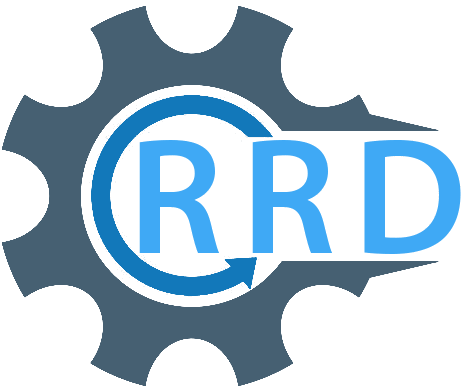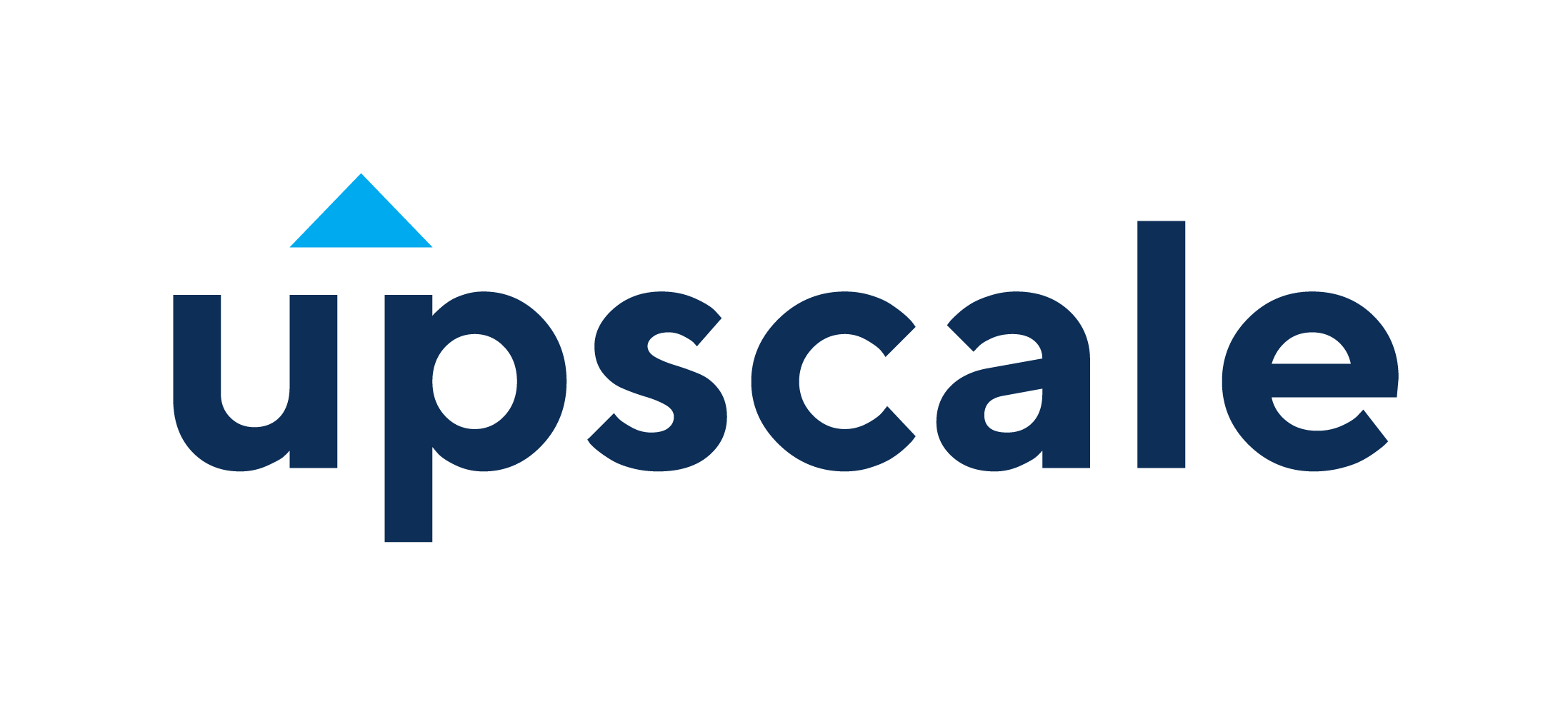Yes, most sales productivity products are built to work across several devices and platforms, allowing sales teams to stay connected and organized while on the go. These solutions frequently feature web and mobile versions, making it simple to obtain critical information and engage with team members no matter where you are. This flexibility can significantly increase a salesperson's productivity and sales performance.
List of 20 Best Sales Productivity Tools
ZoomInfo is a sales intelligence platform that helps streamline your lead generation process. With its advanced search capabilities, you can effortlessly access targeted contact lists based on factors like location and company. By acting as your pers...Read More ZoomInfo
Outreach.io is a Inside Sales solution that caters to the needs of startups, small businesses, and medium-sized enterprises. It equips sales teams with the tools they need to improve communication and achieve better results on calls, resulting in inc...Read More Outreach.io
Tacton CPQ Software solution for maximizing sales efficiency and optimizing product design. Featuring an intuitive interface and robust sales tools, Tacton simplifies the entire process of customizing modular products. No matter the complexity, Tacto...Read More Tacton
SmartWriter - the powerful personalization software that takes advantage of customer data like their Linkedin profile, recent achievements, and industry news, to generate highly personalized icebreakers for outreach. SmartWriters cutting-edge approac...Read More SmartWriter
Salesinteract is a CRM solution that provides a 30-day free trial without the need for a credit card. Our platform boasts a user-friendly dashboard that displays live sales and user data, eliminating the need for additional plugins. Experience unprec...Read More Salesinteract
Bruxt is a B2B contact data solution for global professionals and organizations. Our advanced platform gives your company a competitive advantage, providing reliable and up-to-date B2B contacts. Stay ahead in the market with Bruxt and power up your b...Read More Bruxt
Vymo, the premier Sales Engagement Platform designed specifically for financial institutions. Streamlining the sales process, Vymo seamlessly integrates with multiple systems through a user-friendly interface. Increase your sales teams productivity a...Read More Vymo
Zendesk Sell is a cloud-based CRM solution for businesses of all sizes. Streamline customer relationships and improve your sales teams performance with its intuitive interface. Take control of leads, deals, and interactions effortlessly, while the ro...Read More Zendesk Sell
Basecamp Scout solution for sales managers looking to optimize their field reps productivity. Utilizing advanced GPS technology, this app allows for easy route mapping, real-time location tracking, and task management. Additional features like geo-fe...Read More Basecamp Scout
Round Robin Distributor is a tool for Sales and Service teams to streamline lead assignment and case routing. With automatic distribution, territory and skill-based routing, and relationship-based assignment, this software ensures fair and efficient...Read More Round Robin Distributor
SlideFill, the groundbreaking B2B SaaS solution designed to revolutionize the way you create presentations. With its data-driven insights and integration of customer data, SlideFill empowers your sales, marketing, and customer support teams to effort...Read More SlideFill
Velocify LeadManager is a sales automation tool tailored for high-velocity sales teams. Our platform accelerates the lead response process, equipping your team with the tools they need to efficiently close deals. With Velocify LeadManager, rest assur...Read More Velocify
the powerful sales management tool, LinkedIn Sales Navigator. Experience seamless integration with your CRM to increase productivity for your sales teams on-the-go. Maximize the value of CRM data and enhance efficiency for field sales with Sales Navi...Read More LinkedIn Sales Navigator
ROI4CIO solution for IT vendors looking to enhance their pricing, configuration, and ROI calculations. By automating pricing and ROI evaluations, ROI4CIO simplifies the process of connecting with prospective clients and closing deals quickly. This co...Read More ROI4CIO
Imprint - Asti is a Fieldforce Management System. This powerful tool is designed to enhance workforce efficiency and drive business success for both employers and employees. With its automation capabilities, manual processes are a thing of the past,...Read More Imprint - Asti
InsideView is the leading Sales Force Automation solution that provides real-time market and organizational intelligence, integrating seamlessly with top CRM and marketing automation platforms. Keep your sales representatives informed and up-to-date...Read More InsideView
A Field Activity Management software, now offering a complimentary one-month trial! Keep tabs on work hours, expenses, visit start and end times, and daily duties with ease using your teams smartphones or tablets. Gain peace of mind and streamline mi...Read More Field Activity Management
Mozility is a Enterprise Productivity and Automation software. With a wide range of tools including Field Sales Management, Mobile CRM, Service and Complaint Management, and Data Collection, Mozility is tailored to suit your organizations specific ne...Read More Mozility
Upscale is an innovative sales engagement software designed to drive revenue growth through targeted multi-channel sequences. Our platform streamlines sales processes, enabling sales teams to effectively convert leads and generate a consistent stream...Read More Upscale
Salesloft is a platform that simplifies your sales communication. With email and call tracking combined, you can gather valuable engagement data to guide your next move and streamline your sales process. Keep all your communication activities organiz...Read More Salesloft
Learn More About Sales Productivity Tools
- What Is Sales Productivity Tools?
- What Are The Recent Trends In Sales Productivity Tools?
- Benefits Of Using Sales Productivity Tools
- Important Factors To Consider While Purchasing Sales Productivity Tools?
- What Are The Key Features To Look For In Sales Productivity Tools?
- Why Do Businesses Need Sales Productivity Tools?
- How Much Time Is Required To Implement Sales Productivity Tools?
- What Is The Level Of Customization Available In Sales Productivity Tools?
- Which Industries Can Benefit The Most From Sales Productivity Tools?
- Conclusion
What Is Sales Productivity Tools?
Sales productivity tools are software or technology solutions that are intended to help sales teams improve their efficiency, productivity, and effectiveness in their everyday responsibilities and operations. These technologies are intended to streamline the entire sales process, from lead generation to completing deals, allowing sales representatives to focus on what they do best: selling.
There is a diverse selection of sales productivity tools on the market, each with unique features and functionalities to meet the demands and goals of different firms. One of the primary goals of sales productivity tools is to automate time-consuming and repetitive operations, allowing sales professionals to focus on more important tasks such as developing connections with prospects and closing agreements.
Sales representatives can spend more time engaging with potential clients by automating processes such as data entry, activity tracking, and lead nurturing, which can lead to greater conversion rates. Sales productivity solutions also give real-time insights and analytics to assist sales teams in identifying and prioritizing high-quality leads, as well as tracking their progress and success.
With these insights, teams may better understand their sales processes and make data-driven decisions to boost overall productivity and effectiveness. Furthermore, these solutions provide collaboration and communication features that assist sales teams in staying on track, sharing information, and working together to close deals. Sales reps can work efficiently and boost their productivity regardless of their geographic location thanks to tools such as team calendars, shared documents, and real-time messaging.
In addition to these features, sales productivity solutions include customer relationship management (CRM) functionality, which provides a single platform for managing client data and interactions. This not only helps sales teams keep organized, but it also allows them to tailor their interactions with prospects and clients, thereby improving the whole sales experience. Overall, sales productivity tools are vital for every firm that wants to improve the effectiveness of its sales teams.
These solutions can dramatically improve the productivity and effectiveness of sales teams by automating processes, providing important insights, promoting collaboration, and offering CRM capabilities, resulting in greater revenue and business success. With so many options available, it's critical to examine your company's specific objectives and goals before selecting the best sales productivity tool for your team.
What Are The Recent Trends In Sales Productivity Tools?
In recent years, the sales industry has seen an increase in the use of technology to boost productivity and efficiency. As a result, a variety of sales productivity tools have been developed to assist sales teams in improving their performance and meeting their goals. So, what are the current trends in sales productivity tools?
1. Artificial Intelligence (AI) Integration: The incorporation of AI into sales productivity tools is a relatively new trend that has gained pace in recent years. AI-powered technologies can evaluate massive volumes of data from a variety of sources, including customer interactions and market trends, to deliver significant insights that can assist sales teams in making data-driven decisions and optimizing their tactics.
2. Mobile Optimization: As remote work becomes the new normal, sales personnel must be able to utilize productivity tools while on the road. As a result, an increasing number of sales productivity solutions are being customized for mobile devices, allowing sales staff to remain connected and productive even when they are not at their desks.
3. Integration With CRM Systems: In recent years, there has been an increase in the popularity of integrating sales productivity tools with customer relationship management (CRM). This enables sales teams to optimize their workflow, access critical customer information, and measure their success in one spot.
4. Gamification: Many sales productivity solutions now include gamification components like leaderboards, badges, and awards to keep sales teams engaged and motivated. This not only increases production, but it also promotes teamwork and healthy competition.
5. Personalization And Customization: In today's highly competitive sales business, one-size-fits-all solutions are ineffective. As a result, many sales productivity solutions now include customization and customization options to meet the specific needs and preferences of each sales team.
Benefits Of Using Sales Productivity Tools
Sales productivity tools are software or technology solutions that enable sales teams to perform more efficiently and effectively. These technologies are specifically developed to expedite sales processes, automate operations, and provide important information to help salespeople succeed.
We'll look at the benefits of adopting sales productivity tools and how they can help your sales team succeed.
1. Increased Efficiency: Using sales productivity tools provides a significant gain in efficiency. These solutions automate time-consuming operations like data entry, lead creation, and email follow-ups, freeing up sales representatives to focus on more critical responsibilities like closing deals.
2. Improved Organization: Sales productivity solutions provide a consolidated platform for managing customer data, communication, and the sales pipeline. This keeps all team members on the same page and prevents key leads or client information from falling through the cracks.
3. Improved Collaboration: Sales productivity tools enable teams to seamlessly collaborate on projects and share critical information in real time. This not only enhances communication, but also leads to improved team alignment and cooperation.
4. Tailored Communication: Many sales productivity systems have capabilities like email personalization and lead scoring, which enable you to send targeted and tailored communications to potential clients. This can lead to increased engagement and, ultimately, improved conversion rates.
5. Data-Driven Insights: Sales productivity solutions frequently include useful data and analytics that can help teams understand their performance and find areas for improvement. With this knowledge, teams can make data-driven decisions and constantly enhance their sales strategy.
6. Streamlined Sales Process: Sales productivity tools can help you streamline the whole sales process, from prospecting to closing deals. This not only saves time, but also guarantees consistency and correctness in your sales strategy.
7. Shorter Sales Cycles: By automating operations and giving important information, sales productivity solutions can assist reduce the time it takes to close deals. This leads to speedier sales cycles and higher income for enterprises.
Important Factors To Consider While Purchasing Sales Productivity Tools?
With ever-increasing market competition, sales teams are continually seeking for new ways to boost productivity and sales. This is when sales productivity tools come in handy. These tools provide a variety of features and capabilities to assist salespeople organize their duties, track their progress, and ultimately complete more deals. However, with so many options on the market, it might be difficult to find the ideal one.
Let's explore, we'll go over the most critical variables to consider when selecting sales productivity solutions.
1. capabilities And Functionalities: The first and most important consideration is the tool's capabilities and functionalities. You must evaluate your team's demands and choose which features will be most valuable to them. Common features to check for are lead management, pipeline tracking, contact management, email integration, and reporting. You may also wish to investigate sophisticated features such as AI-powered lead scoring and automation possibilities.
2. Usability: You don't want your team spending hours learning how to utilize a difficult application. As a result, it is critical to ensure that the tool you select is user-friendly and simple to navigate. Look for a straightforward UI with intuitive functions that need no training.
3. Integration Options: Sales productivity tools should not work in isolation; instead, they should interact seamlessly with other tools and systems to deliver a comprehensive solution. Make sure the tool you chose integrates with your current CRM, email, and other sales tools to enable a smooth workflow and data synchronization.
4. Mobile Accessibility: In today's fast-paced industry, sales staff are constantly on the move. As a result, it is critical to select a solution that provides mobile access, allowing your staff to remain connected and productive even when they are away from their desks.
5. Customer Support: Technology is susceptible to faults and failures. What matters most is how quickly these difficulties are remedied. Before committing to a tool, make sure to research their customer support alternatives. Look for products that provide 24-hour help and have a reputation for offering prompt and efficient assistance.
6. Scalability: As your firm grows, so will your sales crew. It is critical to select a tool that can handle this increase. Look for a tool that provides scalable plans and can meet your future needs.
7. Pricing: Finally and most critically, examine the tool's pricing. While you do not want to sacrifice quality, you also do not want to spend too much money on a gadget that does not provide good value. Before making a decision, compare the pricing of various instruments as well as their features and benefits.
What Are The Key Features To Look For In Sales Productivity Tools?
Sales productivity solutions are vital for any firm that wants to improve its sales process and increase efficiency. These tools exist in a variety of forms, including software, applications, and platforms, but they all serve the same purpose: to help sales teams streamline their work and meet their goals. When it comes to selecting the best sales productivity tools for your organization, there are a few essential features to look for to guarantee you're making a wise investment.
Here are the most important characteristics to consider while assessing sales productivity tools:
1. Integration With Existing Systems: To avoid workflow disruptions, sales productivity solutions should effortlessly integrate with your existing systems, such as CRM, email, and calendar. To ensure accuracy and efficiency, use technologies that are easy to integrate and provide real-time data synchronization.
2. Customization And Flexibility: Because each organization has a unique sales process, you must select a tool that can be adjusted to your individual requirements. Look for solutions that are highly flexible and provide a range of functionality, pricing, and scalability options.
3. Automation Capabilities: Time is critical in sales, and automation tools can greatly increase productivity by automating repetitive processes like data input, email outreach, and scheduling. Look for products that provide automation features specific to your sales process.
4. Real-Time Data And Analytics: The best sales productivity tool should offer real-time data and analytics to help you track your team's performance and find areas for development. Look for tools that allow you to create customizable dashboards, reports, and analytics in order to acquire useful insights and make informed decisions.
5. Mobile Accessibility: In today's fast-paced company environment, being able to access your sales data and duties on the go is critical. Look for products that provide mobile accessibility, such as a mobile app or responsive web design, so that your team can remain productive even when they are not in the office.
6. User-Friendly Interface: The greatest sales productivity tools are straightforward and simple to use, especially for non-technical team members. Look for tools with a simple interface and adequate training and support to ensure a seamless adoption.
7. Collaboration And Communication Features: Sales is a team activity, thus collaboration and communication are essential for success. Look for systems that provide features like team dashboards, task assignments, and internal communications to encourage collaboration and keep everyone on track.
Why Do Businesses Need Sales Productivity Tools?
Sales productivity solutions are vital for companies of all sizes and sectors. They are effective tools in streamlining and optimizing sales processes, allowing businesses to improve productivity, accuracy, and, eventually, income. In today's competitive market, having a comprehensive set of sales productivity tools is no longer a luxury, but a must-have for firms to remain competitive and develop sustainably.
One of the key reasons firms use sales productivity solutions is to increase the overall efficiency of their sales teams. These solutions automate manual processes like data input, lead tracking, and forecasting, giving salespeople more time to focus on prospecting and completing deals. This leads to a more productive and motivated sales crew, which has a substantial influence on the bottom line.
Furthermore, sales productivity solutions offer useful insights through data analysis. By tracking key performance indicators (KPIs) and sales metrics, these tools help firms identify areas for improvement, assess the effectiveness of sales initiatives, and make data-driven decisions. This data can help firms manage and prioritize their sales efforts, resulting in improved conversion rates and income.
Another significant advantage of sales productivity tools is their potential to improve collaboration and communication within the sales team. These technologies, which include shared calendars, team messaging, and file sharing, encourage teamwork and remove communication obstacles, resulting in more unified and productive sales efforts. Furthermore, sales productivity solutions provide a centralized platform for tracking all sales-related operations.
This reduces the need to transition between various systems and spreadsheets, lowering the likelihood of errors and inconsistencies. With all of their information and processes in one location, sales teams can work more efficiently and effectively, resulting in higher production. Furthermore, in today's digital age, buyers expect businesses to provide a streamlined and personalized purchasing experience, which may be achieved through the use of sales productivity tools.
These solutions provide a 360-degree perspective of client interactions, allowing salespeople to customize their approach to the customer's needs and preferences. This not only enhances the customer experience, but it also raises the likelihood of a successful transaction.
How Much Time Is Required To Implement Sales Productivity Tools?
Sales productivity tools are a critical investment for any firm trying to optimize their sales process and increase profits. However, before making a purchase, consider the time investment required to effectively utilize these technologies. The time necessary to adopt sales productivity solutions varies according to the technology and the size of your sales team.
On average, properly integrating the technologies into your sales process can take several weeks to months. This timeline encompasses your team's initial setup, training, and transition periods. It is critical to allow enough time for the implementation process to ensure a seamless and successful integration. Rushing the deployment might lead to misunderstanding and low adoption rates within your team, which defeats the point of investing in these technologies.
To expedite the installation process, it is recommended that you involve all essential stakeholders, including your sales team, IT department, and any other departments that may be affected by the tools. Engaging these parties early on will assist identify potential barriers and streamline the implementation process. Furthermore, it is critical to provide comprehensive training and assistance to your sales force to ensure that they are comfortable and confident in using the new technologies. This training can take place in person, electronically, or via online lessons offered by the tool's seller.
What Is The Level Of Customization Available In Sales Productivity Tools?
Sales productivity solutions are intended to help sales teams streamline operations and increase overall efficiency. One critical factor to consider when considering these tools is the level of customization available. Customization is essential for personalizing the tool to your team and organization's specific needs and preferences. Most sales productivity solutions include some amount of customisation, whether through configurable settings, bespoke dashboards, or connectivity with other tools and systems. However, the level of customization provided may differ from tool to tool. It is critical to carefully evaluate your team's needs and priorities in order to establish the level of customization that will best suit your firm.
When determining the extent of customisation in a sales productivity tool, here are some crucial aspects to look for:
1. Customizable Dashboards And Reporting: A tool with a high level of customisation enables you to tailor your dashboard and reports to your team's specific KPIs and metrics. This will allow you to focus on the information that is most important to your team's performance and goals.
2. Integrations: The ability to integrate with other tools and systems can significantly improve a sales productivity tool's customization possibilities. This helps you to mix data from many sources to get a more complete picture of your team's performance and make better decisions.
3. adjustable Processes: A solution with adjustable workflows enables you to tailor the sales process to your team's specific requirements and preferences. This is especially important for teams using different sales methods or for firms with multiple sales teams.
4. Flexible Settings: Look for a tool that allows you to customize user roles and permissions, email templates, and lead scoring. This will allow you to tailor the tool to your team's exact needs.
5. Personalization Options: Some sales productivity solutions allow you to personalize reports and emails by adding your company's logo or branding. This can help you provide a more tailored experience for your clients and prospects, thereby increasing your team's productivity.
Which Industries Can Benefit The Most From Sales Productivity Tools?
Sales productivity tools are vital for any firm that wants to improve its sales operations and increase its profits. However, certain sectors may benefit even more from these technologies due to their unique sales needs and challenges.
Let's take a closer look at which sectors can gain the most from sales efficiency solutions.
1. E-commerce: In the e-commerce market, competition is severe, and sales teams frequently face a high volume of consumer questions and orders. CRM software and other sales productivity tools can help to expedite the sales process, track customer contacts, and successfully manage leads. Furthermore, AI-powered solutions may assess clients' purchasing patterns and behavior to make personalized recommendations, leading in improved conversion rates and sales.
2. Real Estate: In the real estate business, time is of the essence, and closing deals swiftly is critical. Sales productivity technologies, such as virtual tour software and customer relationship management systems, help simplify and expedite the sales process. These solutions enable real estate brokers to digitally showcase homes while remaining organized with client information, making it easier to follow up and close deals swiftly.
3. Healthcare: The healthcare business is extremely competitive, and healthcare providers must establish excellent ties with their patients. Sales productivity technologies, such as customer relationship management systems, can help healthcare sales teams better manage patient data, appointments, and communications. Additionally, automated follow-up software helps assure timely patient contact, resulting in increased patient satisfaction and retention.
4. Software/IT: Sales productivity tools are essential for software and IT organizations with a diverse range of products and services to offer. Tools such as proposal software can assist sales teams in swiftly creating professional and personalized proposals, whereas sales enablement software can provide effective training and resources to sales representatives to boost their performance.
5. Consulting: Many consulting organizations have a vast customer base, making it difficult to manage interactions and track progress. Sales productivity solutions, such as project management software, can help you optimize your sales process, track consulting projects, and successfully interact with teams and clients. This leads to increased customer satisfaction and greater overall sales performance.
Conclusion
To summarize, investing in sales productivity tools can tremendously benefit your company by increasing efficiency, enhancing organization, and eventually driving revenue development. As you can see, there are numerous tools accessible, each with its own distinct features and capabilities. Before choosing the best tools for your team, you need thoroughly consider your specific needs and goals.
Some important elements to consider include the size of your sales staff, budget, interfaces with existing systems, and a user-friendly interface. You should also examine the level of customization and support provided by the tool, as well as any other features or services that may be useful to your organization. Remember to examine not only the tool's initial cost, but also its potential return on investment and long-term benefits.
It is also essential that you include your sales team in the decision-making process, as they will be the major users of these technologies. By carefully examining these variables and completing thorough research, you can make an informed decision and choose the best sales productivity tools to help your firm succeed. We hope our buyer's guide helped you find the best sales productivity tools.
Sales Productivity Tools FAQ's
Can Sales Productivity Tools Be Accessed Across Multiple Devices And Platforms?
Is Sales Productivity Tools Future-Proof And Adaptable To Emerging Technologies Like AI, Blockchain Or IoT?
As technology advances, sales productivity tools evolve to keep up with current trends. Many top-rated tools already integrate AI, blockchain, and IoT to improve functionality and expedite workflows. These tools are also capable of adapting to emerging technology, making them future-proof. As a result, investing in the correct sales productivity tool can provide long-term benefits and keep your sales staff competitive in an ever-changing business market.
Is There A Free Trial Offered To Assess Sales Productivity Tools Before Committing?
Yes, many sales productivity solutions provide a free trial for potential customers to test their features and functionality before committing. This trial period, which normally lasts 7 to 14 days, allows customers to explore the tool's capabilities and assess whether it satisfies their requirements. It's an excellent technique to evaluate the tool's effectiveness and determine whether it will eventually increase your sales productivity.
Does Sales Productivity Tools Offer Data Security Features And Meet Regulatory Compliance Standards?
Yes, Sales Productivity Tools frequently have powerful data security safeguards to protect critical client and sales information. These could include data encryption, secure login methods, and permission-based access controls. Furthermore, many products comply with industry requirements such as GDPR and CCPA to secure clients' data privacy and security. It is critical to investigate and select a technology that addresses your specific security and compliance requirements.
Can Sales Productivity Tools Integrate Seamlessly With Existing Tools And Platforms?
Yes, most sales productivity technologies integrate well with existing tools and platforms. Data may be quickly exchanged between systems without the need for manual entry, resulting in a more consistent and efficient process.
Furthermore, connection with widely used platforms such as CRM software, email clients, and project management tools guarantees that all sales-related operations are centralized and easily accessible. This streamlined strategy lowers administrative procedures, allowing sales teams to focus on closing business and increasing productivity.






















